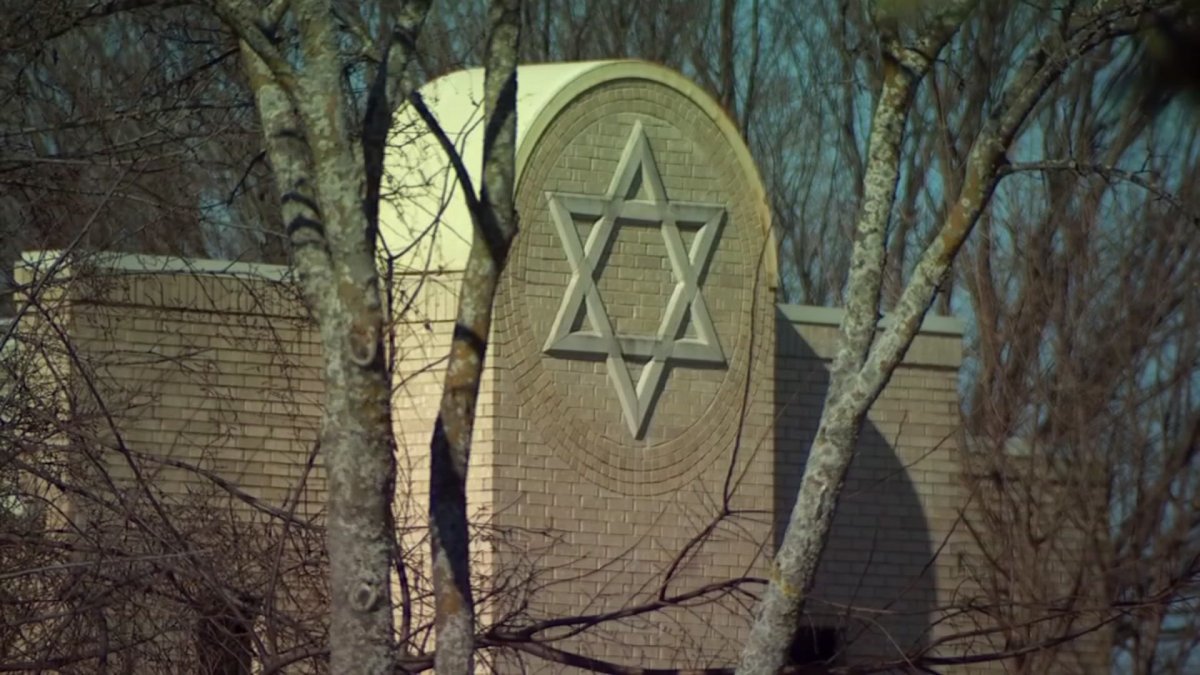
The rabbi of a Colleyville congregation at the center of a hostage situation said healing will take “one step at a time” for their members and community.
The rabbi of a Colleyville congregation at the center of a hostage situation said healing will take “one step at a time” for their members and community.
Rabbi Charlie Cytron-Walker is one of the four people who were held hostage for several hours Saturday at Congregation Beth Israel in Colleyville. The gunman has been identified by authorities as 44-year-old British national Malik Faisal Akram.
Cytron-Walker was a featured speaker on a webinar hosted by the Anti-Defamation League on Thursday. He recalled “scrambling” to get everything ready before their Saturday service when Akram arrived and asked if they had an overnight shelter. Cytron-Walker said he offered tea to him.
Get DFW local news, weather forecasts and entertainment stories to your inbox. Sign up for NBC DFW newsletters.
“He was calm. He was appreciative. He was able to talk with me all the way throughout and look me in the eye,” he said. “I didn’t have a lot of suspicions.”
Several senior law enforcement officials tell NBC 5 and NBC News the captor was demanding for the release of Aafia Siddiqui, a Pakistani scientist who was convicted more than a decade ago and later sentenced to federal prison for firing shots at U.S. troopers and American federal agents in Afghanistan while they were questioning her during a terrorism investigation.
Local
The latest news from around North Texas.
Rabbi Cytron-Walker said Akram demanded to speak with Rabbi Angela Warnick Buchdahl in New York City during the 11-hour ordeal. Rabbi Warnick Buchdahl serves as the Senior Rabbi of Central Synagogue in New York City and is the first woman to lead Central’s Reform congregation in its 180-year history, according to their website.
“I don’t know how or why he chose her exactly other than the fact that he thought that she was the most influential rabbi. I was thinking this guy really believes…Jews control the world,” he said Thursday. “I don’t remember all the details, but it was basically the notion that Jews were more important in his mind than everyone else. America would do more to save Jews than it would to save anyone else. That’s why he specifically targeted a synagogue.”
FBI director Christopher Wray also spoke during Thursday’s webinar.
“Let me be clear and blunt. The FBI is and has been treating Saturday’s event as an act of terrorism targeting the Jewish community,” Wray said. “This was not some random occurrence. It was intentional. It was symbolic, and we’re not going to tolerate anti-Semitism in this country.”
Wray added the bureau recognizes the Jewish community, in particular, has suffered violence and “faces very real threats from really across the hate spectrum”. Asked what new steps the FBI was taking in response to incidents against the Jewish community, Wray pointed to their domestic hate crimes “fusion cell” which launched in 2019. The unit brings together expertise on both domestic terrorism and hate crimes.
In at least one instance, Wray said the unit has been able to deliver proactive results.
“For example, there was a plot to blow up the Temple Emanuel synagogue in the Denver area. For the first time, we were able to bring together hate crime charges ahead of time and get to the subject before the plot could move forward,” he said. “The reality is with today’s terrorist threats whether it’s foreign motivated or domestic motivated, more and more we’re seeing what are largely lone actors.”
Cheryl Drazin, vice-president of the Anti-Defamation League’s Central Division, noted the outpour of support following the incident Saturday. Drazin stressed the importance of building bridges with the community before crisis situations.
“[Spend] time outside our own echo chambers, hearing ideas that are different from our own and speaking up when we see hate and demanding that others do the same,” she said.
Rabbi Cytron-Walker said the days following the hostage situation have been overwhelmed with outreach, and he has had a conversation with therapists through the Jewish Family Service.
“I’m getting the care I need. I’m trying to make sure I take care of my family and at the same time, one of those pieces we’re going to have to get past is that sense of fear,” Cytron-Walker said. “A lot of Jewish people in particular, right? Our people are living are with a sense of fear because of these kinds of events. I just want to stress that after thousands of thousands of services that I’ve led, this is the first time this has happened.”
Right now, he said one of the most important steps in healing is being together in their community.
“That’s needed right now more than anything else,” he said.
Thursday night, religious leaders from across north Texas showed solidarity with the congregation during a virtual meeting
"To you and to the other hostages, it is a blessing to be in your presence because to be in your presence this evening is truly an answer to prayers. The entire community and the entire nation was praying for you," said Edward Burns, Bishop of the Diocese of Dallas.
Congregation Beth Israel plans to hold services Saturday along with their religious school on Sunday.